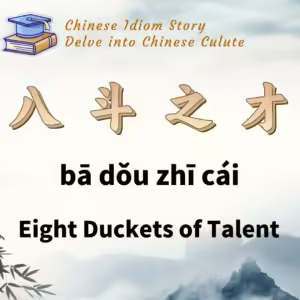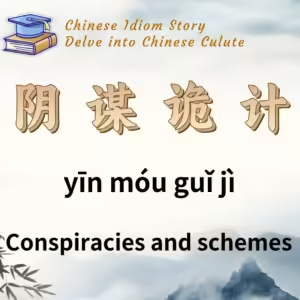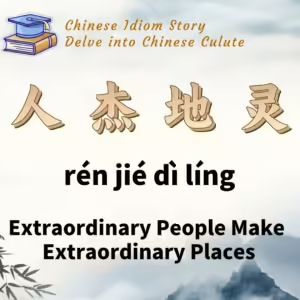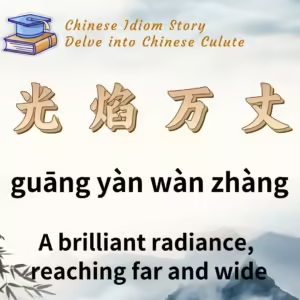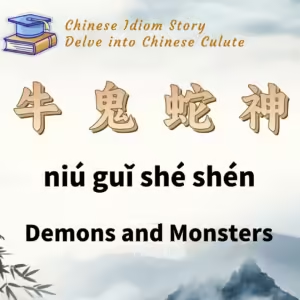
Chinese Idiom: 牛鬼蛇神 (Niu Gui She Shen)
English Translation: Demons and Monsters
pīn yīn: niú guǐ shé shén
Idiom Meaning: This idiom refers to individuals who stir up trouble and create chaos, likened to mythical demons and monsters. It describes people who act maliciously or disruptively, causing social unrest.
Historical Source: Li He’s Poetry Preface by Du Mu (唐代杜牧《李贺诗序》)
Idiom Story
Li He (李贺), a renowned poet of the Tang Dynasty, was known for his unique and imaginative poetry. As a child prodigy, his talent was widely recognized, and he garnered the attention of prominent literary figures like Han Yu (韩愈) and Huangfu Ti (皇甫提). When Han Yu and Huangfu Ti visited Li He, they were amazed by his extraordinary poetic talent.
One of Li He’s famous poems, Gao Xuan Guo (《高轩过》), was a vivid depiction of the visitors and his own lofty ambitions. The poem praised Han Yu and Huangfu Ti as exceptional talents and expressed Li He’s own grand aspirations.
Du Mu, in his preface to Li He’s poetry, used the imagery of mythical creatures like whales, giant sea creatures, and demons with cow heads and snake bodies to illustrate the extraordinary and imaginative nature of Li He’s poetry. He commented that such mythical creatures were insufficient to represent the fantastical and original quality of Li He’s work.
Over time, the idiom “牛鬼蛇神” (demons and monsters) evolved from its original context of praising creativity to a more negative connotation. It now describes people who cause trouble and disruption, much like the disruptive figures Du Mu metaphorically likened to demons and monsters in his critique of Li He’s poetic style.



